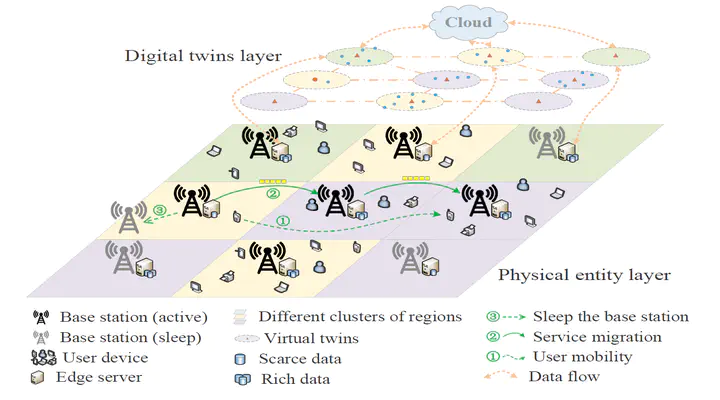Traffic Prediction-Assisted Federated Deep Reinforcement Learning for Service Migration in Digital Twins-Enabled MEC Networks
 Xiangyi Chen
Xiangyi Chen
Abstract
In Mobile Edge Computing (MEC) networks, dynamic service migration can support service continuity and reduce user-perceived delay. However, service migration in MEC networks faces significant challenges due to the uncertainty in future traffic demands, the distributed architecture of MEC networks, high operating costs and the dynamism of network resources. Digital Twins (DT), which achieve the mapping of physical entities to virtual digital models in cyberspace, provide new perspectives for intelligent and efficient service provisioning in MEC networks. In this paper, we propose a traffic prediction-assisted federated deep reinforcement learning scheme to efficiently migrate services and improve the cost efficiency of DT-enabled MEC networks. Specifically, to address the coupled spatio-temporal dependencies of mobile traffic and the imbalance in traffic data, a Multi-order Spatio-temporal information integration-based distributed Traffic Prediction (MSTP) scheme is proposed, which achieves high-accuracy mobile traffic prediction at a low cost. Then, we propose a Federated Cooperative cost-efficient Service Migration (FCSM) algorithm that adaptively adjusts service migration strategies in a distributed manner to respond to future traffic demands. Moreover, a theoretical model is developed to analyze the convergence of FCSM and derive the upper bound of the time-average squared gradient norm. Finally, extensive simulations demonstrate that the proposed schemes achieve excellent traffic prediction performance, enhance users’ Quality of Service (QoS), and significantly reduce the system cost of MEC networks.